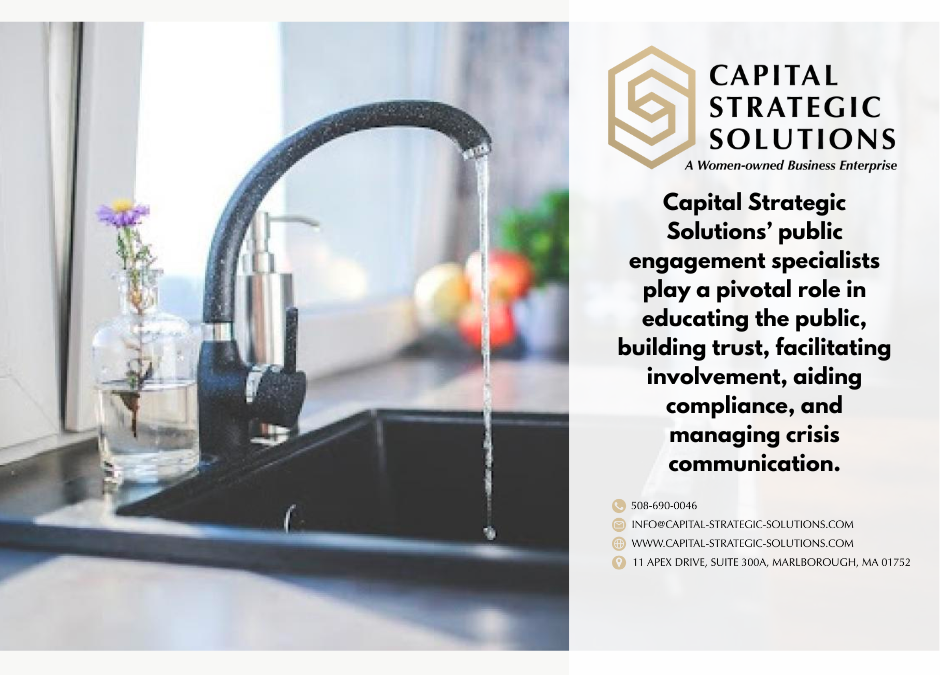The U.S. Environmental Protection Agency’s (EPA) Lead and Copper Rule (LCR) is a critical regulation designed to control lead and copper levels in public drinking water systems. In recent years, the EPA has made significant improvements to this rule to ensure safer drinking water for communities across the country. These enhancements, often referred to as the Lead and Copper Rule Improvements (LCRI), have far-reaching implications for public health and require robust community engagement to be effectively implemented.
Understanding the Lead and Copper Rule Improvements
The LCRI mainly focuses on tightening the standards for lead and copper in drinking water. This includes stricter testing protocols, more rigorous water quality control measures, and enhanced public notification requirements. The goal is to minimize the presence of these harmful elements in drinking water to protect public health, especially for vulnerable populations like children and pregnant women.
While these regulatory enhancements are a positive step forward, they also bring about challenges, particularly in terms of community engagement and compliance.
This is where the expertise of public engagement specialists becomes crucial:
Educating the Public: The complexities of the LCRI can be challenging for the general public to understand. Public engagement specialists can develop clear, accessible communication strategies to educate community members about the importance of these improvements and how they impact public health.
Building Trust: Historical mistrust in water systems, especially in areas previously affected by lead contamination (like Flint, Michigan), can hinder compliance and cooperation. Specialists in public engagement can build trust through transparent and consistent communication.
Facilitating Community Involvement: Active community participation is vital for the successful implementation of the LCRI. Public engagement professionals can create platforms for community feedback and involvement, ensuring that the voices of those most affected are heard and considered in decision-making processes.
Navigating Compliance Challenges: Communities, especially under-resourced ones, may face challenges in complying with the new standards. Public engagement specialists can help these communities identify resources, grants, and assistance programs to meet the new requirements.
Crisis Communication: In cases where lead or copper levels exceed safe limits, swift and effective communication is essential. Specialists can develop crisis communication plans to quickly inform and guide the public during such emergencies.
The improvements to the EPA’s Lead and Copper Rule mark a significant step in ensuring safer drinking water. However, the successful implementation of these enhancements relies heavily on effective community engagement. Public engagement specialists play a pivotal role in educating the public, building trust, facilitating involvement, aiding compliance, and managing crisis communication. Their expertise is not just beneficial but essential for communities navigating the complexities of these regulatory improvements.
Capital Strategic Solution applies a comprehensive and multifaceted approach to effectively engage community members, including but not limited to:
Organizing regular community meetings and workshops to inform residents about the LCR, its implications, and the measures being taken for compliance.
Developing and distributing clear, concise, and visually appealing educational materials such as brochures, flyers, and infographics that explain the LCR and its importance in layman’s terms.
Utilizing social media platforms to reach a broader audience with regular posts, interactive content, and Q&A sessions.
Collaborating with local newspapers, radio stations, and TV networks to disseminate information about the LCR.
Engaging with local stakeholders such as healthcare providers, community leaders, and business owners. They can act as ambassadors of information within their networks.
Establishing dedicated channels for gathering data, public feedback, and concerns, such as hotlines, email addresses, or web portals.
Providing all communication materials and resources in multiple languages relevant to the community’s demographics to ensure inclusivity.
Utilizing online platforms for webinars and virtual town halls, especially important in reaching those who may not be able to attend in-person meetings.
Conducting regular surveys to gather feedback on community knowledge, concerns, and perceptions about water quality and the LCR.
Engaging with young people through schools and youth organizations. Encourage them to participate in water testing initiatives and environmental stewardship programs.
Maintaining transparency by regularly reporting on water quality, compliance measures, and progress. This could be done through a dedicated section on the local government or water authority’s website.
Working with local health departments to disseminate information on the health impacts of lead and copper, and the importance of testing and compliance.
Participating in or organizing community events and fairs where booths can be set up to distribute information, answer questions, and engage with the community in a more informal setting.
Each of these strategies can be tailored to fit the unique needs and characteristics of different communities by our highly skilled team, ensuring effective engagement and successful implementation of the Lead and Copper Rule.
For more information, email us at info@capital-strategic-solutions.com.

